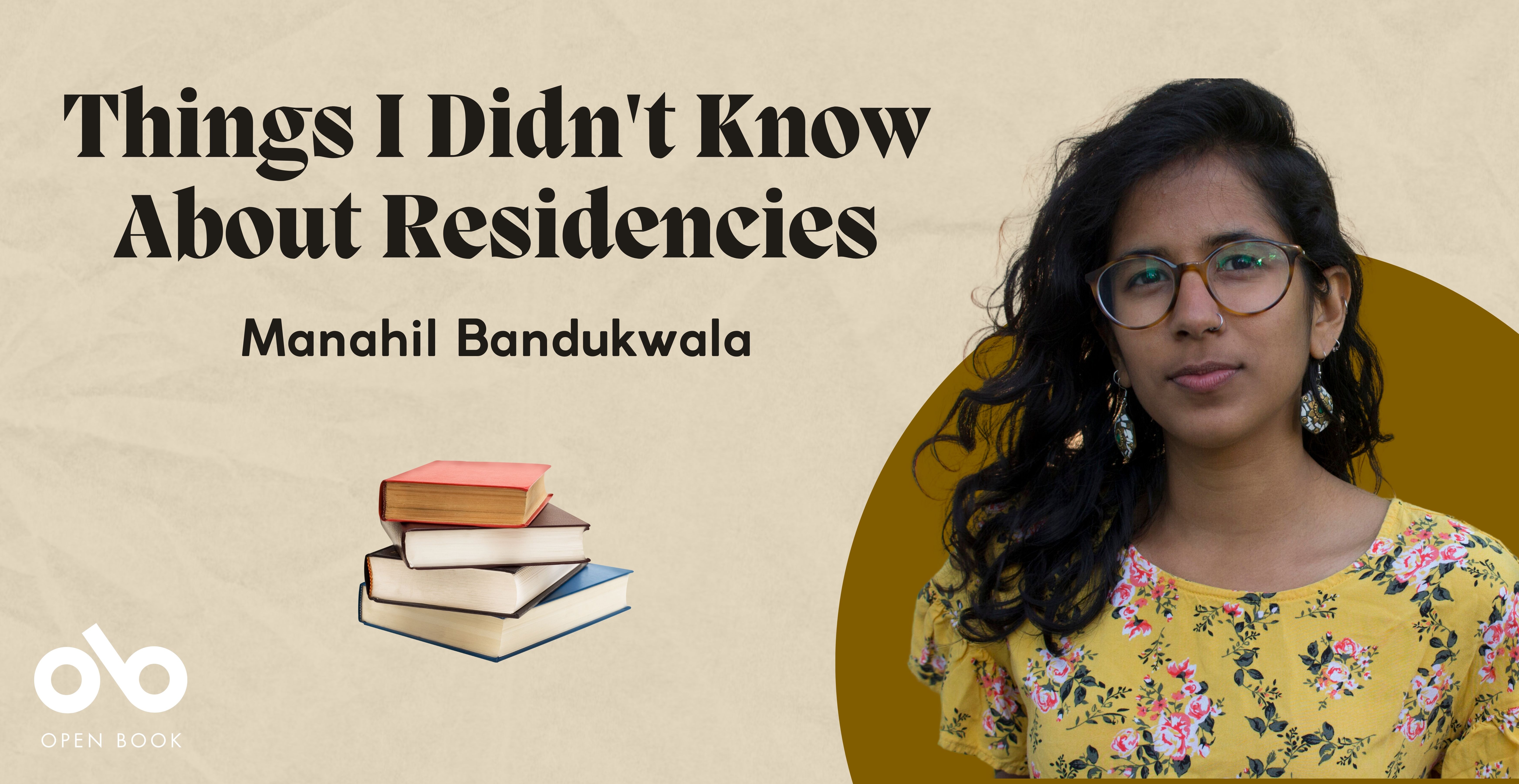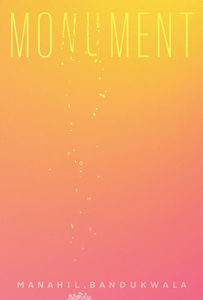Things I Didn’t Know About Residencies
By Manahil Bandukwala
Before 2023, I could barely describe what “residency” meant in the realm of writing and art. A residency felt like it was reserved for someone with more writing experience, more books, and just more overall. In 2022, I fit writing into my work and study schedule, was publishing poems in literary magazines, and had a book coming out—what was the use of a residency? To me, it felt like something I didn’t have the time or money for.
As I write this post in the mid-point of 2023, I’ve completed a virtual residency (with Open Book) and a community arts residency (with Jumblies Theatre). A residency can mean a number of different things—it can be virtual or in person, at a university or tucked away in some mountains, mentorship-focused or self-directed, and so on. But overall, what they have in common is that residencies help further your artistic practice and projects by giving you creative time and space.
I do want to preface this list by saying that any kind of arts residency does take up time and it is important to still think about how to slot it into a life of artist day-jobs and the other things we have going on. However, a residency can still be worth looking into and applying for, and I hope this list gives a bit of insight into the possibilities!
1. You dedicate time to your craft
These days, I work in publishing and writing, but find myself with very little time or creative space to think of new work and new ideas. A writer isn’t just a writer but is also an editor, a promoter, and so on. It can be difficult to dive into new creative territory when so much brain space is occupied by older work. This is where I’ve found the residencies I’ve done have brought a focused artistic presence into my life.
At Jumblies Theatre, my office was quite literally an art studio surrounded by draped saris and materials and sculptures for two weeks—and those two weeks felt much longer but also just flew by. It’s difficult to give myself permission to dedicate entire days to art-making, but a residency has that built in. As I go into the fall with writing residencies ahead, I’m also excited at the prospect of this time that’s guaranteed to be carved out.
2. You make the residency work for you
The Open Book residency was virtual, which meant I could slot it into my life very easily and at my own convenience. I didn’t have a different space I needed to go to or travel and accommodation arrangements to make. This definitely helped in reducing the stress of planning logistics. I still had writing I needed to deliver, and I settled into the routine of writing posts for Open Book’s Writer-in-Residence blog, I began to have more and more fun with it! I had other work commitments going on, but this was a residency that worked well with everything else.
3. You make new friends and artistic connections
You spend a lot of time with other artists when you’re at a residency, whether it’s members of a cohort or staff there to make your project possible. If the residency is in-person, you spend a lot more time with someone than you might otherwise do. There’s a world of things to learn from each other, including things you might not have otherwise thought possible.
Your CanLit News
Subscribe to Open Book’s newsletter to get local book events, literary content, writing tips, and more in your inbox
4. You can get paid
Something I definitely didn’t realize about artist residencies is that you can get paid for the time you spend there! When residencies have application fees, I tend to write them off from the get-go.
Some residencies offer payment to artists for the time spent there while others also cover accommodations and travel. For ones that don’t, you can apply for grants to pay yourself and cover expenses (I wrote quite a bit about applying for grants as Writer-in-Residence with Open Book if you want to check any of those posts out).
Having a confirmed invitation or letter of acceptance from a residency can increase your chances with a grant application, as the presence of the residency itself speaks to why the funding is instrumental to your work.
The availability of funding is amazing because it allows writing residencies to fit into your work life. You can circumvent the stress of needing to take unpaid time away from work to make the residency possible by having some of the costs covered.
So if you’re curious about residencies and are thinking about applying to one, I hope this post is helpful in making that leap. In the busyness of day-to-day life, the idea of going away for even two weeks can feel impossible. What I’m learning now though is: apply first, think about logistics later.
The views expressed by Open Book columnists are those held by the authors and do not necessarily reflect the views of Open Book.
Manahil Bandukwala is a multidisciplinary artist and writer. She is the author of Women Wide Awake (Mawenzi House, 2023) and Monument (Brick Books, 2022; shortlisted for the Gerald Lampert Memorial Award), and numerous chapbooks. In 2023, she was selected as a Writer's Trust Rising Star. See her work at manahilbandukwala.com.






